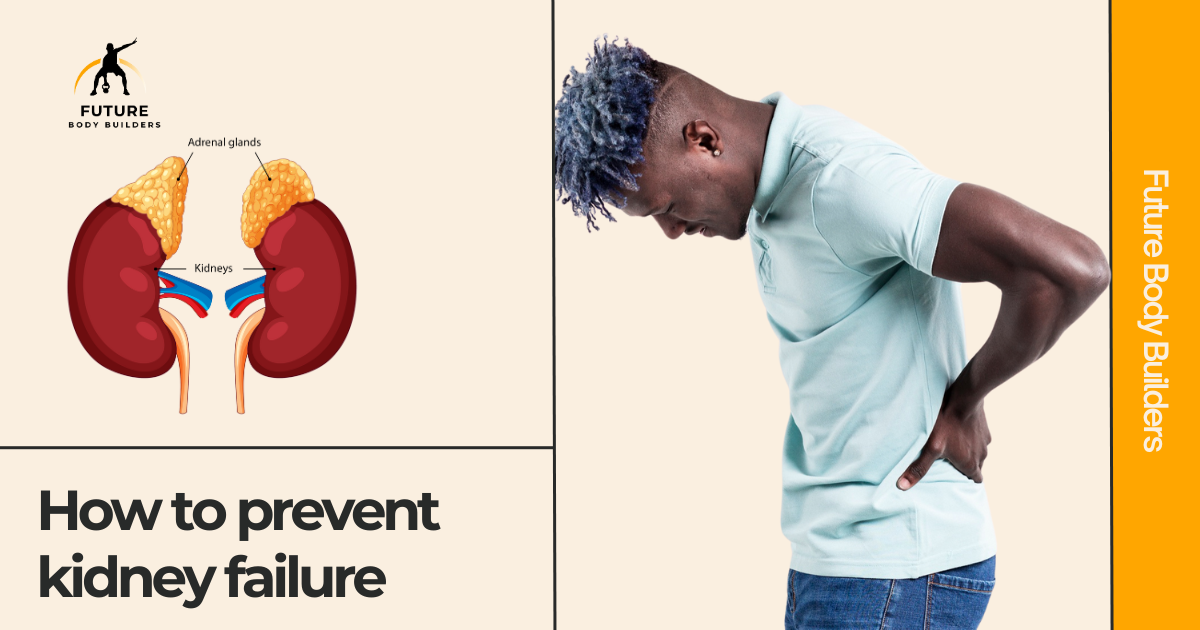How to prevent kidney failure in 2024


Many people overlook the importance of their kidneys, which can lead to serious issues like kidney failure. These organs work tirelessly to filter waste and maintain balance in the body. However, the reality is that one in three adults in the United States is at risk for developing kidney disease. Therefore, understanding how to protect your kidneys is essential for long-term health.
Your kidneys are bean-shaped organs, roughly the size of your fist. They are located under your ribcage, toward your back. Most people have two functioning kidneys, but you can live well with just one, provided it works correctly.
The kidneys perform several essential functions. One of their primary roles is to help your body eliminate toxins. They filter your blood, removing waste products and sending them out of your body in urine. When the kidneys do not work properly, waste products can build up. This can make you feel sick and, without treatment, can be life-threatening.
In addition to waste removal, your kidneys regulate fluid levels in your body. They also eliminate acid produced by your cells and maintain a healthy balance of water, salts, and minerals like sodium, calcium, phosphorus, and potassium in your blood. This balance is crucial; without it, your nerves, muscles, and other tissues may not function normally.
Moreover, your kidneys produce hormones that play important roles in your body. They help control your blood pressure, stimulate the production of red blood cells, and keep your bones strong and healthy.
Consider getting a Kidney Health Check if you meet any of the following criteria:
A Kidney Health Check includes three simple tests:
Kidney failure/renal failure occurs when one or both kidneys can no longer function properly. This condition can develop in two main ways. It can be acute, meaning it happens suddenly, or chronic, meaning it develops gradually over time.
Acute kidney failure can occur quickly, often as a result of an injury, infection, or severe dehydration. On the other hand, chronic kidney failure is a long-term condition that worsens slowly, often due to health issues like diabetes or high blood pressure.
Kidney failure represents the most severe stage of kidney disease. At this stage, the kidneys are unable to filter waste and excess fluids from the blood. Without treatment, kidney failure can be fatal. If you experience kidney failure, you may only survive a few days or weeks without medical intervention.
Symptoms of kidney failure can vary but may include feeling unwell, confusion, swelling in different body parts, and changes in urination patterns. Early detection and treatment are crucial for managing kidney failure and improving outcomes.
Kidney failure can develop gradually, often without noticeable symptoms in the early stages. However, as the condition worsens, signs may indicate your body is struggling due to kidney failure. Here’s a list of common symptoms:
Kidney failure occurs when the kidneys lose their ability to filter waste from the blood effectively. The process is often measured using the estimated glomerular filtration rate (eGFR). A normal eGFR is about 100, while the lowest eGFR is 0, indicating no kidney function.
Kidney disease progresses through five stages, each reflecting the level of kidney function:
Preventing kidney failure starts with taking care of your kidneys and overall health. Here are five ways to protect your kidneys and avoid kidney failure.
1. Exercise Regularly
Regular exercise is vital for maintaining a healthy weight and overall well-being. Physical activity helps control blood pressure and cholesterol levels. It also reduces the risk of diseases like diabetes and heart disease.
2. Get Regular Check-ups
Regular check-ups with your doctor can help detect kidney issues early. A doctor can screen for kidney disease using two simple tests. A urine test (albumin creatinine ratio) checks for protein in the urine, which could signal kidney damage. A blood test (glomerular filtration rate) measures how well your kidneys filter waste.
3. Manage Your Blood Sugar
High blood sugar levels over time can damage the tiny blood vessels in your kidneys, leading to kidney disease. If you have diabetes, managing blood sugar through diet, exercise, and medication is crucial for protecting your kidneys.
4. Eat a Healthy Diet
A well-balanced diet like the Mediterranean or DASH diet can support kidney health. These eating plans focus on fresh fruits, vegetables, whole grains, lean proteins, and low-fat dairy while limiting sodium, sugar, and unhealthy fats. Such diets can help manage blood pressure, reduce cholesterol, and improve overall kidney function.
5. Quit Smoking
Smoking damages organs in your body, including your kidneys. If you’re struggling to quit, speak with your doctor about options. Quitting smoking is one of the most effective ways to improve kidney health and reduce the risk of other serious conditions.
Kidney health is crucial for overall well-being, yet many people overlook it. With one in three adults at risk for kidney disease, it’s essential to understand how to protect these vital organs. Regular check-ups, managing blood pressure and blood sugar, maintaining a healthy diet, exercising, and quitting smoking are simple steps to prevent kidney failure. If you want to enhance your health and reduce your risk of kidney disease, get a personalized fitness plan from us today!